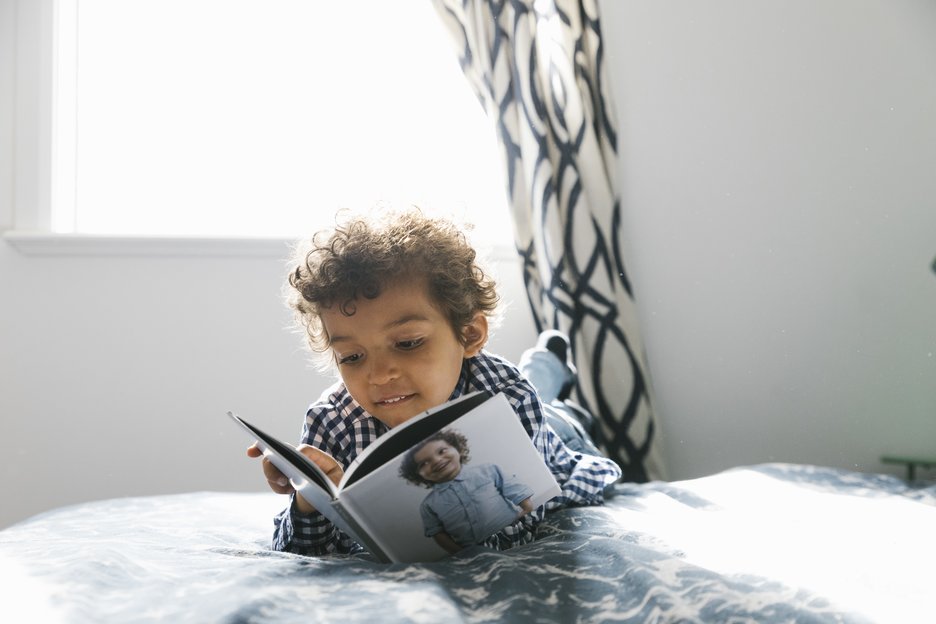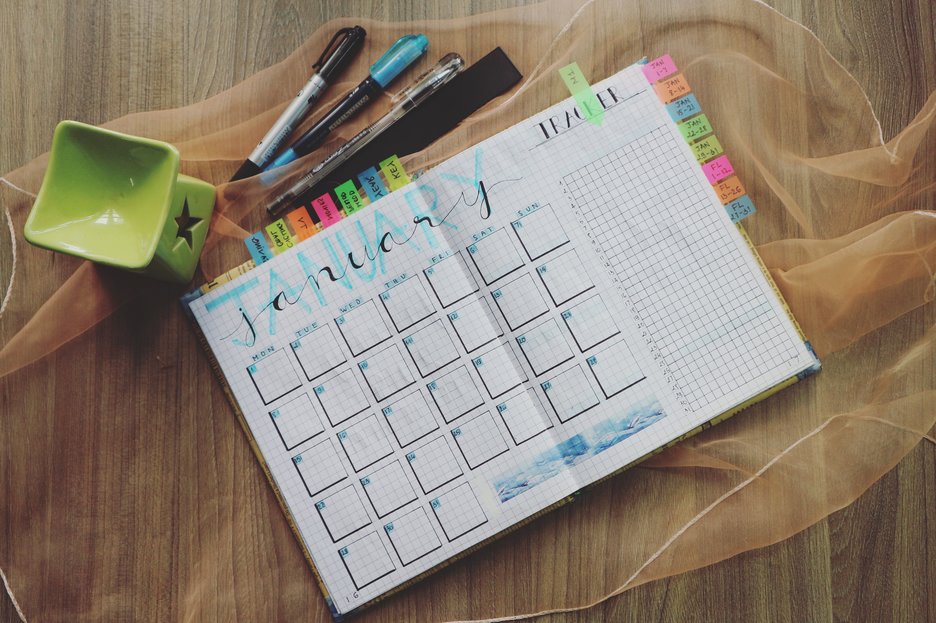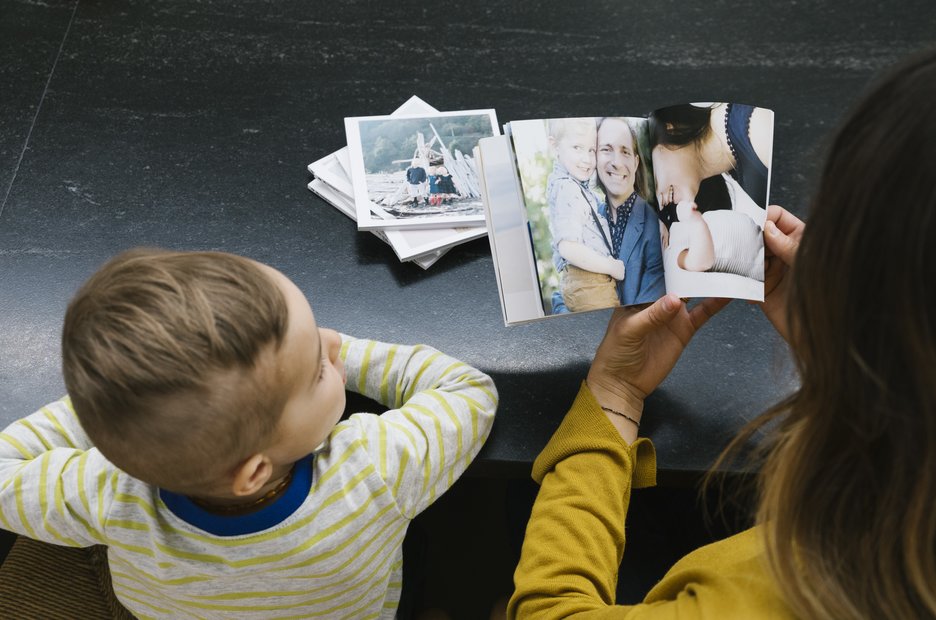FREE STANDARD SHIPPING, ALWAYS
15 Tips for a Healthy, Effective Co-Parenting Relationship
Published 5/23/23

Advice
As much as we want to stop time and keep our kids from growing up, the truth is, they’ll never stop learning and growing—and neither will you. And as you continue to learn and grow, your relationships will evolve and that’s alright. What’s most important is ensuring your children are comfortable, safe, and happy. Navigating this new landscape with your co-parent can take a lot of trial, error, patience, and forgiveness, but with the right mindset and a set of rules and boundaries, smooth sailing is absolutely possible. Read on for 15 of the top co-parenting tips for creating calmer seas in your parenting future.
Print photos
Having a specific place your kids can find their memories is a great first step to take on your co-parenting journey.
How:
- Start a monthly photo journal for them to remember memories shared with both parents. They can turn their camera roll into a photo book each month right on their phone
- Or, you can create a photo book for them and add your co-parent as a contributor. That way, you can both add photos for your children to enjoy in their photo books for years to come
Why:
- By printing your children’s photos, you’re preserving a moment in time that they can also look back on. 68% of parents feel more confident in their parenting ability when printing their children’s photos
- Looking at printed photos with your children starts positive conversations. 84% of parents have experienced “elaborative reminiscing conversations” with their children when viewing printed photos together, resulting in stronger bonds
Helping your kids focus on their best memories with both parents is an easy win when it comes to parenting during divorce—and photo books are the best way to do just that!
Recognize each other’s purpose
Even if you prefer to interact as little as possible with your co-parent, or parallel parent, it’s still important to remember each of you has an important role. Don’t view each other as opponents, but rather as teammates with the same end goal in mind: your child’s happiness.
You may not always share the same beliefs on how to get things done, but you can agree on the most important thing: being present as a parent in your child’s life.

Communicate
Among all of the different co-parenting strategies, this one may be the most important. Unless you’re both comfortable sharing information about your separate personal lives, try to only share information that’s pertinent to your child, like upcoming events, school updates, etc. Make sure to discuss important decisions with each other. Keep it professional and cordial, think of yourselves as colleagues. Never communicate through your children.
Also, if you’re hoping to have a bit more structure around your conversations, consider room-specific chat apps like HeyFam. HeyFam is a free app that allows you to set the topic or theme of each “room” so you can organize all of our messages and stay on task. Set up chat rooms like “summer camp” and “school pickups” so you can coordinate logistics all in one place.
Be consistent
There’s no right or wrong way on how to co-parent, but to avoid the game of “but mom lets me do this” or “dad lets me do that,” create a set of ground rules with your co-parent, if possible. Take time to discuss bedtimes, screen time, allowance, play dates and create hard boundaries around them together.
Additionally, don’t get caught up in wanting to be the “fun parent” or the “cool parent” as this disrupts consistency and can lead to toxicity around co-parenting and parenting in general. Remember, you both have essential roles and are equally important to your children.
Be flexible
One of the best co-parenting tips for divorced parents is to simply be accommodating. Actions speak louder than words and by leading with a positive example, you have a higher chance of receiving the same courtesy from your co-parent.
Always meet in the middle
Try to compromise as much as possible with your co-parent. Before you dismiss or say “no!” to something, try to seek a compromise first. Whether that’s dealing with schedule conflicts or rules around dinner time, if you both keep your children top of mind, you should be able to find a happy middle ground that everyone can agree with.

Stick to a schedule
Before setting up ground rules for how you agree to raise your children, create a schedule and stick to it. The best split parenting advice suggests that you create a schedule you can both agree on and not switch it up unless absolutely necessary.
This will create a solid routine for everyone and make adapting to this new lifestyle a lot easier.
Create set boundaries
Construct a clear layout of what you both want co-parenting to look like. Make a master plan that lays out communication frequency, methods, scheduling, and ground rules.
While there is no set-in-stone guidebook on how to raise happy kids during divorce, staying consistent with your joint plan will help create smooth sailing for all.
Keep it cordial
As mentioned earlier, communicate like colleagues, respectfully, and professionally. If you want to err on the side of parallel parenting with little communication, make it count. Only discuss important things that relate to your child and never use your child to communicate with each other.
Show up
Being present at important events in your child’s life is crucial. Try to resolve any tension between you and your co-parent to make showing up easier. Don’t let the fear of seeing one another in person stop you from cheering your child on.

Your child’s best interest is top priority
Always remember that you’re teammates working toward the same goal, rather than opponents or enemies trying to take each other down. The #1 thing you should agree on is your child’s happiness and well-being. All rules, communications, and discussions should revolve around and reflect that sentiment.
Accept you may have different rules
As tough as it may be at times, acceptance is better than battle. So long as the rules in question do not interfere with your child’s health, safety, or overall wellbeing, agree to disagree. Ideally, your joint co-parenting plan will create a platform for you to form rules you both agree with.
Use caution in front of your kids
It goes without saying that kids are impressionable, therefore bad-mouthing your co-parent in front of them can be detrimental. Don’t use your children to communicate with the other parent and don’t share harmful opinions with your child. Instead, focus on your child’s happiness.
Be a balanced parent
As mentioned before, don’t get caught up in trying to be the “cool” parent or the “fun” parent. Be a balanced parent. Make sure your child enjoys their time with you while also showing discipline when needed.
Stay calm
Communicate from a place of facts versus feelings with your co-parent. This will lead to calmer discussions when emotions are taken out of it. Deal with your emotions separately through techniques such as journaling, deep breathing, exercising, or whatever best relieves your stress.
Co-parenting can be a challenging but rewarding experience when approached with empathy, communication, and respect. By implementing the advice from these 15 tips, and prioritizing the needs of your children, co-parenting can be a positive and healthy experience for everyone involved.